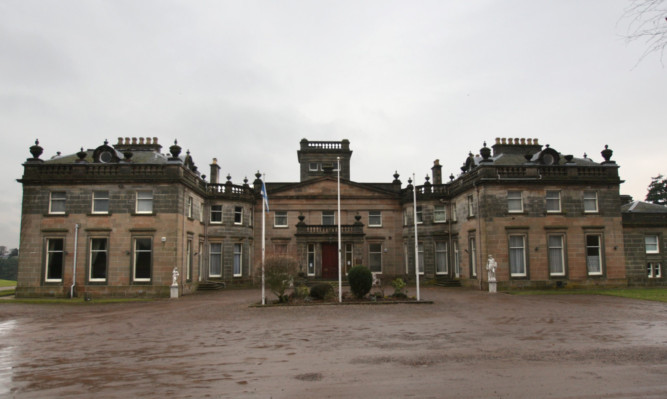The complex history of the Letham Grange golf resort has taken another remarkable twist in a long-running legal battle.
Once dubbed ‘the Augusta of Angus’, Letham Grange, near Arbroath, has now been placed back in the hands of liquidators by a panel of Court of Session judges in a reversal of an earlier legal ruling in favour of the Taiwanese owner.
After 12 years of costly courtroom battles, the decision may now have finally cleared the way for the possible disposal of the Victorian mansion house and acclaimed golf courses.
With a hotel, two golf courses the Old Course and Glens and a curling rink, Letham Grange was regarded as a jewel in the Angus tourism crown before it hit financial trouble in 2001 and liquidators were appointed a year later.
However, although the country club was valued at around £1.8 million, the principal asset of the hotel property was sold for less than £250,000 to a company also controlled by Letham Grange owner Peter Liu in a deal which put it beyond the reach of the liquidator.
The move meant that creditor claims could not be successful, sparking a prolonged legal battle involving liquidator Matthew Henderson and companies controlled by Mr Liu, which went as far as the House of Lords.
In 2009 the liquidator won a separate case raised to nullify a deed transferring ownership of the golf courses and estate to another of Mr Liu’s companies, Nova Scotia Ltd (NSL).
Against the costly and prolonged legal background, the golf courses have remained operational through the efforts of an active and enthusiastic committee of volunteers.
The latest determination relates to a 2011 decision by Lord Glennie, which acknowleged “unsatisfactory” events and transfer transactions but found in favour of Mr Liu.
In contrast, the Appeal Court led by Lady Paton, sitting with Lord Menzies and Lord Marnoch, has determined that because of Mr Liu’s direct involvement with the network of associated companies Letham Grange Development Company Ltd, NSL & Foxworth their conclusion was that deliberate steps had been taken to keep a valuable asset away from the liquidator.
Appeal evidence revealed that the Taiwanese businessman had used a string of aliases to conduct his business affairs.
One name, J Michael Colby, was even unknown to his solicitor when used as a representative of NSL in its Letham Grange dealings. Mr Liu said he used that name to avoid what he perceived to be discrimination in the west against people with oriental names.
In the latest judgment, Lady Paton states: “In this admittedly complex case it seems to me that, while the Lord Ordinary very properly acknowledged that there were unsatisfactory and indeed suspicious events and transactions.he did not take the final step of clearly recognising that there was a significant circumstantial case pointing to a network of transactions entered into with the purpose of keeping Letham Grange out of the control of the liquidator.”
The sole prospect of appeal against this latest decision of the Inner House of the Court of Session now lies in the Supreme Court, but several hurdles would have to be overcome before it could even be lodged.
Subject to that, the liquidator is now free to sell the hotel and courses and pay a dividend to creditors from the proceeds.
